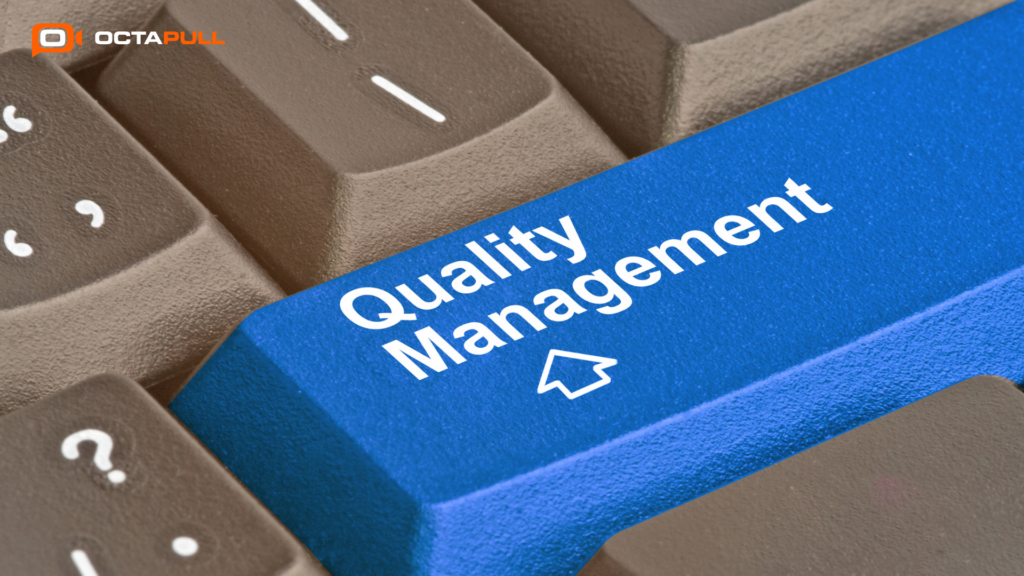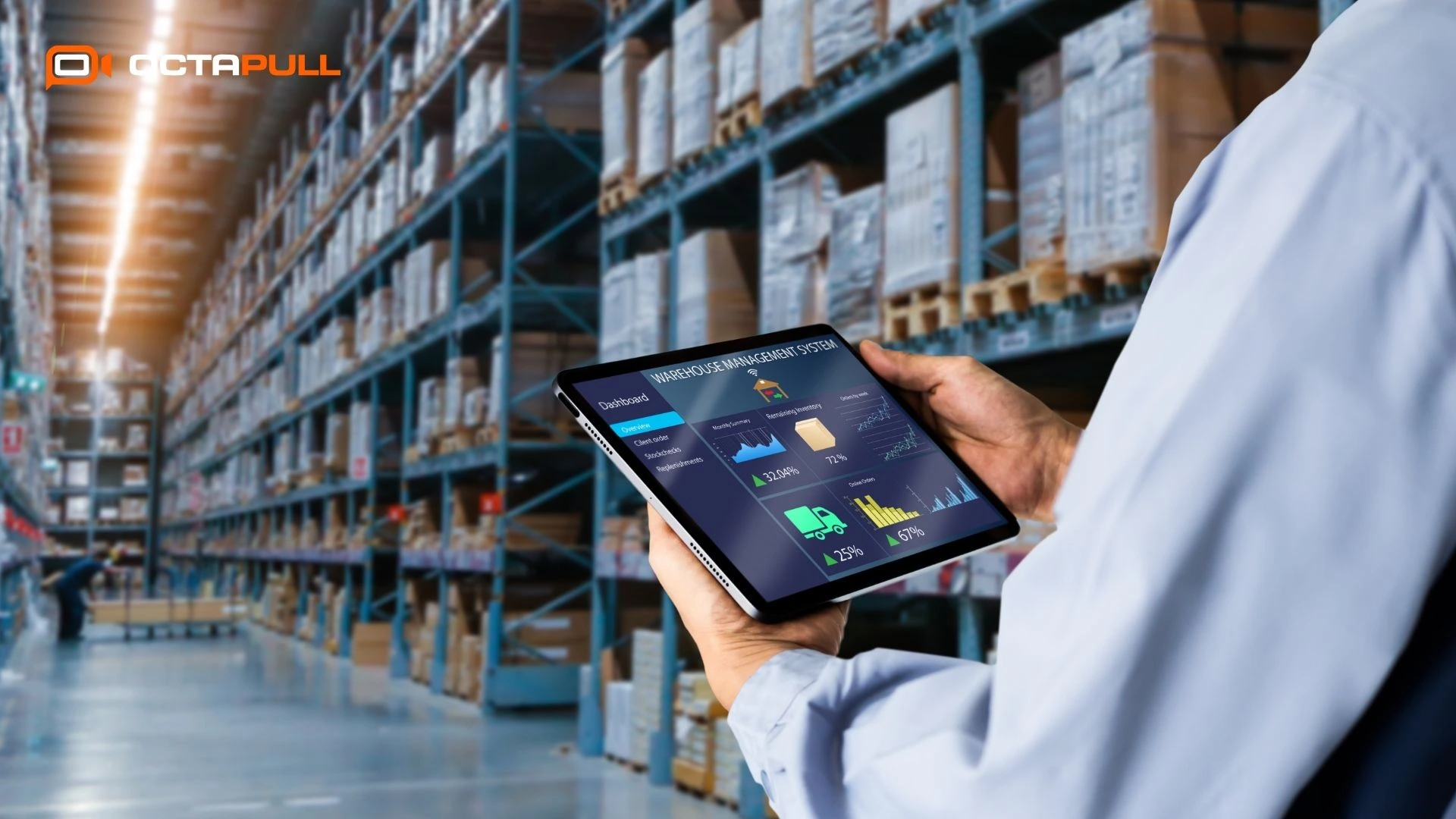TQM in the Digital Age: Technology’s Role in Quality Management
TQM, or Total Quality Management, is a holistic quality approach focusing on continuous improvement, customer contentment, and the active engagement of all personnel within a company. It involves systematic management techniques, statistical methods, and a dedication to excellence across all operational facets.
TQM strives to boost effectiveness, minimize defects, and guarantee top-notch quality in products or services by nurturing a culture of continual advancement and learning throughout the entire organization.
Evolution of TQM in the Digital Age
The arrival of the digital age has significantly transformed TQM practices. Traditional quality management relied on manual processes and paper-based systems, but the integration of digital technologies has ushered in a new era.
The evolution of TQM in the Digital Age involves the adoption of advanced tools and technologies to enhance efficiency, accuracy, and overall quality in organizational processes.
Significance of Technology in Quality Management
Technology plays a vital role in enhancing the effectiveness of quality management processes. It enables organizations to collect and analyze data, identify patterns, and make informed decisions.
The integration of technology in quality management ensures real-time monitoring, faster problem resolution, and better overall organizational performance.
Digital Transformation in TQM

Integration of Technology into TQM Processes
- Data Collection and Analysis: In traditional quality management, data collection often relies on manual methods, making it time-consuming and susceptible to errors. With digital transformation, organizations deploy sensors, IoT devices, and automated data collection systems. For instance, in manufacturing, sensors on production lines collect real-time data on product dimensions and quality parameters. This data is then automatically analyzed, providing insights into process variations and helping identify areas for improvement.
- Corrective Action Tracking: Instead of relying on manual logs or emails, organizations use dedicated software solutions. For example, if a quality deviation is detected, an automated system can generate a corrective action request, assign responsibilities, and track the status of resolution in real-time. This ensures a systematic approach to problem-solving, reducing the risk of issues falling through the cracks.
- Document Management: Traditional document management systems often involve physical paperwork, making it challenging to maintain version control and accessibility. Digital transformation introduces cloud-based document management systems. These systems allow for centralized storage, easy retrieval, and collaborative editing. For instance, quality manuals, standard operating procedures, and compliance documents can be stored securely in the cloud, ensuring that all authorized personnel have access to the latest versions.
Role of Automation in Quality Management
Automation stands as a foundational element in quality control across a variety of industries, introducing efficiency and precision to vital processes.
In manufacturing, the use of computer vision systems revolutionizes quality control. For instance, in the automotive industry, automated vision systems can swiftly identify imperfections in paintwork and detect deviations in product dimensions. This not only enhances the accuracy of inspections but also accelerates the production process.
Likewise, in software development, automated testing tools play a crucial role in upholding code quality.
In the healthcare industry, where ensuring the validity of data is of utmost importance, automation is utilized for the validation of data to guarantee the reliability of patient information.
Automated systems methodically validate patient data according to predefined criteria, thereby minimizing the potential for errors in medical records.
These examples highlight how automation, whether in manufacturing, software development, or healthcare, significantly contributes to enhanced quality control, minimizing errors, and accelerating processes for improved overall outcomes.
Connectivity and Collaboration in the Digital Era
- Real-time Collaboration in Supply Chain Management: Digital transformation fosters real-time collaboration in supply chain management. Through interconnected systems, suppliers, manufacturers, and distributors can share information instantly.
- Cross-functional Collaboration in Product Development: Digital tools enable collaborative efforts across different functions in product development. Teams engaged in design, engineering, and quality assurance can work together in real time, exchanging design specifications and quality requirements. This integration ensures that discussions for quality are incorporated from the beginning of the product development process, thereby avoiding potential quality issues in later stages.
Data Analytics in Quality Management
Big Data Analytics for Enhanced Quality Insights
Using big data for quality enhancement provides unparalleled insights into quality management. Examining extensive datasets allows organizations to uncover intricate patterns, trends, and correlations that may be difficult to discern using conventional methods.
For instance, in the manufacturing sector, the use of sensors on production lines generates massive datasets capturing real-time information on product dimensions, quality parameters, and production rates.
In this analytical process, complex patterns, trends, and correlations emerge, providing a comprehensive understanding of the production landscape. Traditional methods might struggle to identify subtle variations, but big data analytics comes through in uncovering nuanced insights.
Real-time Monitoring and Decision-Making
With the integration of data analytics, real-time monitoring becomes a powerful tool in quality management. Continuous data streams allow organizations to detect anomalies and deviations instantly.
This prompt information supports quick decision-making, allowing for proactive responses to emerging issues, reducing downtime, and ensuring consistent adherence to quality standards.
Predictive Analytics in TQM
Predictive analytics plays a key role in anticipating and preventing quality issues before they occur. By analyzing historical data and identifying patterns, organizations can make informed predictions about potential future challenges.
By checking past data, organizations gain valuable insights into the factors that have historically led to quality issues. These insights become the foundation for building predictive models that can forecast future challenges.
For instance, within the healthcare sector, examining historical patient data might unveil correlations between specific treatment methods, environmental factors, or medication variations and the occurrence of adverse outcomes or complications in patient care.
Artificial Intelligence (AI) in TQM

Applications of AI in Quality Control
Incorporating Artificial Intelligence (AI) into quality control processes, particularly through technologies like computer vision, represents a significant advancement. Automated systems, enhanced by AI capabilities, are equipped to conduct precise visual inspections of products.
This involves the identification of defects or deviations from established quality standards. The application of AI in quality control ensures an elevated level of accuracy throughout the inspection process, leading to a substantial reduction in the margin of error.
For instance, in manufacturing, AI-powered visual inspections can swiftly and accurately identify imperfections in products, contributing to higher overall product quality.
Machine Learning for Continuous Improvement
Machine Learning (ML) algorithms play a crucial role in achieving continuous improvement within Total Quality Management (TQM) practices. These algorithms analyze intricate patterns within extensive datasets, deriving insights and knowledge from experience.
In the context of TQM, this capability becomes valuable for ongoing enhancement efforts. By processing vast amounts of data, ML algorithms can pinpoint optimization opportunities within operational processes. They can suggest efficiency improvements based on historical data, adapting to evolving quality requirements over time.
For example, within a manufacturing environment, Machine Learning (ML) algorithms can assess data related to production processes, pinpointing opportunities for enhancement. This contributes to developing a culture of continual improvement within the organization's quality management structure.
Cybersecurity Challenges in TQM
Protecting Quality Data in the Digital Landscape
In the digital realm, protecting quality data becomes paramount as organizations increasingly rely on digital systems for managing and analyzing crucial information.
Cybersecurity measures must be implemented to secure quality-related data from unauthorized access, ensuring the integrity and trustworthiness of the information.
Ensuring Data Integrity and Confidentiality
Maintaining the integrity and confidentiality of quality data is a critical aspect of cybersecurity in Total Quality Management (TQM).
Organizations need to establish robust protocols and encryption methods to prevent data tampering and unauthorized disclosure. This ensures that quality-related information remains accurate, reliable, and accessible only to authorized personnel.
Strategies for Cybersecurity in TQM Systems
To address cybersecurity challenges in TQM systems, organizations should adopt comprehensive strategies. This involves implementing multi-layered security measures, conducting regular cybersecurity audits, and providing continuous personnel training.
Additionally, the integration of advanced technologies such as blockchain for data immutability and secure authentication methods can further enhance the cybersecurity posture within the TQM framework.
These strategies collectively contribute to the resilience of TQM systems against potential cyber threats, safeguarding the integrity, confidentiality, and overall security of quality-related data in the digital era.
In conclusion, the integration of technology and digital advancements has led Total Quality Management (TQM) into a new era, reshaping traditional practices and favoring a culture of continuous improvement.
The digital transformation not only streamlines TQM processes but also facilitates real-time collaboration, proactive decision-making, and predictive analytics.
However, as TQM embraces the digital age, the significance of robust cybersecurity measures cannot be overstated. Protecting quality-related data, ensuring data integrity, and adopting strategic cybersecurity approaches are crucial for preserving the trustworthiness of information in this dynamic and interconnected landscape.






